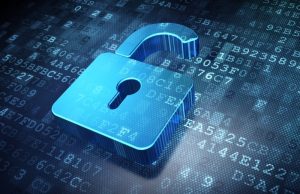Staying safe online: the potential contribution of the Arts and Humanities to enhance the public’s awareness of cybercrime and cybersecurity

By Dr Audrey Guinchard
With the latest 2015 statistics finally recording the rise of online fraud after years of weak recording and calls for better knowledge of cybercrime, developing better cybersecurity practices have never been so crucial to prevent cybercrime.
Nevertheless, cybersecurity suffers from a reputation of being out of reach for the end-users, the preserve of ‘geeks’ and those digitally literate.
To raise awareness that being safe online does not require a degree in computing, the UK Government has launched its “Be Cyber Streetwise” campaign. Those in London would have seen the colourful visuals and three simple but key messages on the Tube’s carriages to have better passwords, anti-virus softwares and to update softwares on a regular basis.
The newly created European Centre for Cybercrime (EC3) linked to Europol has also tried to develop similar infographics to give tips on how to protect oneself’s against malwares and fraud.
However, is the message getting across? According to a 2015 UK report, 23% of adults still lack basic digital skills which do not even include knowing the three steps to stay safe online. The 2015 European Cybersecurity survey is no more encouraging as 51% open emails from people they do not know.
Could the Arts and Humanities enhance the public’s awareness of cybercrime/cybersecurity?
Already, some theatre plays have emerged to tell the darksides of the net, warning of the dangers brought by the lack of privacy from Government surveillance (Privacy, 2014 London) as well as those of (big) data sharing and cybercriminals behaviours (Darknet, 2016, London). Furthermore, Darknet’s director Russell Bender and writer Rose Lowenstein engaged with their audience, during the two years creative process (Cambridge Science Festival, March 2014), and after. The play was indeed followed with four well-attended post-show talks on the different topics that the play touched on – TOR, data collection, how to stay safe online and hacking and human rights.
It may well be time to go further and use the creativity and power of communication of the Arts and Humanities to build a future where being safe online is standard practice and easily accessible to the public.
(Disclaimer: this post does not engage the University of Essex, but its sole author)
Dr Audrey Guinchard. A member of the Editorial Board for the Journal of Strategic Security (US – Henley-Putman University) since 2011, she has published on cybercrime and cybersecurity analyzing the challenges criminal law and human rights face in the digital age. She is Co-Investigator, leading the law work package, in the UK EPSRC funded project (2013-2017) Digital Prosumer – Establishing a ‘Futures Markets’ for Digital Personhood Data (EP/L005859/1). She received a Visiting Fellowship at the Centre for Research in the Arts, Social Sciences and Humanities (CRASSH) – University of Cambridge – in Spring 2010.



